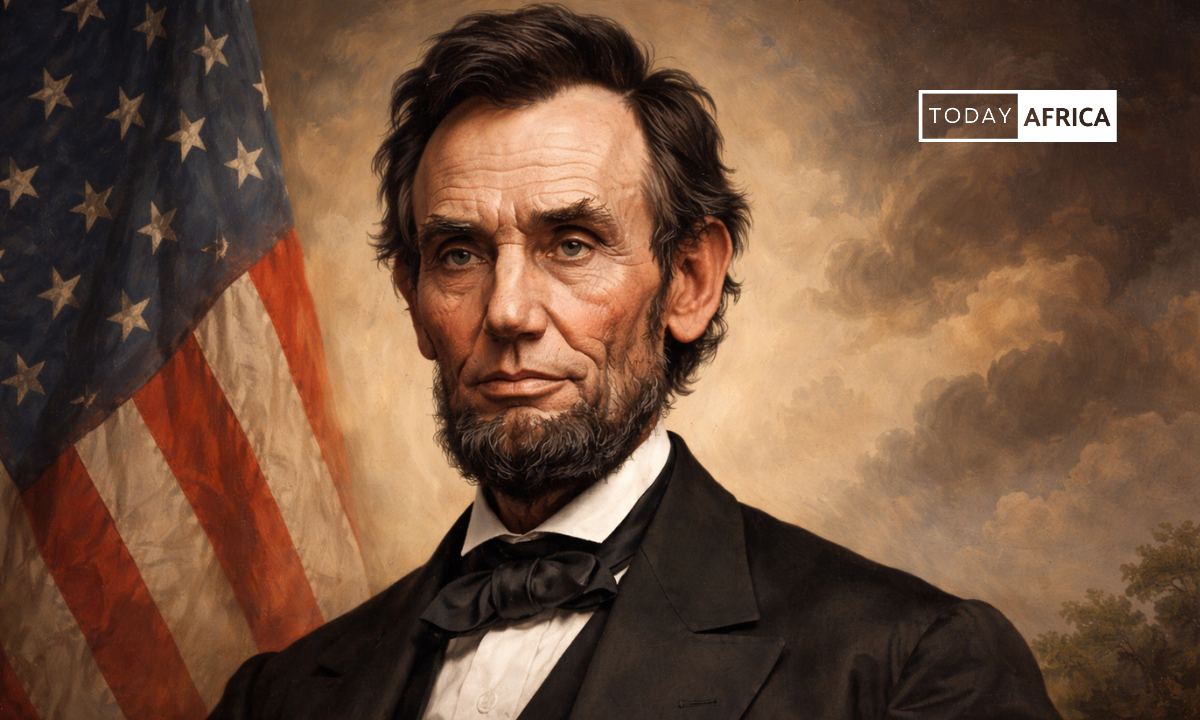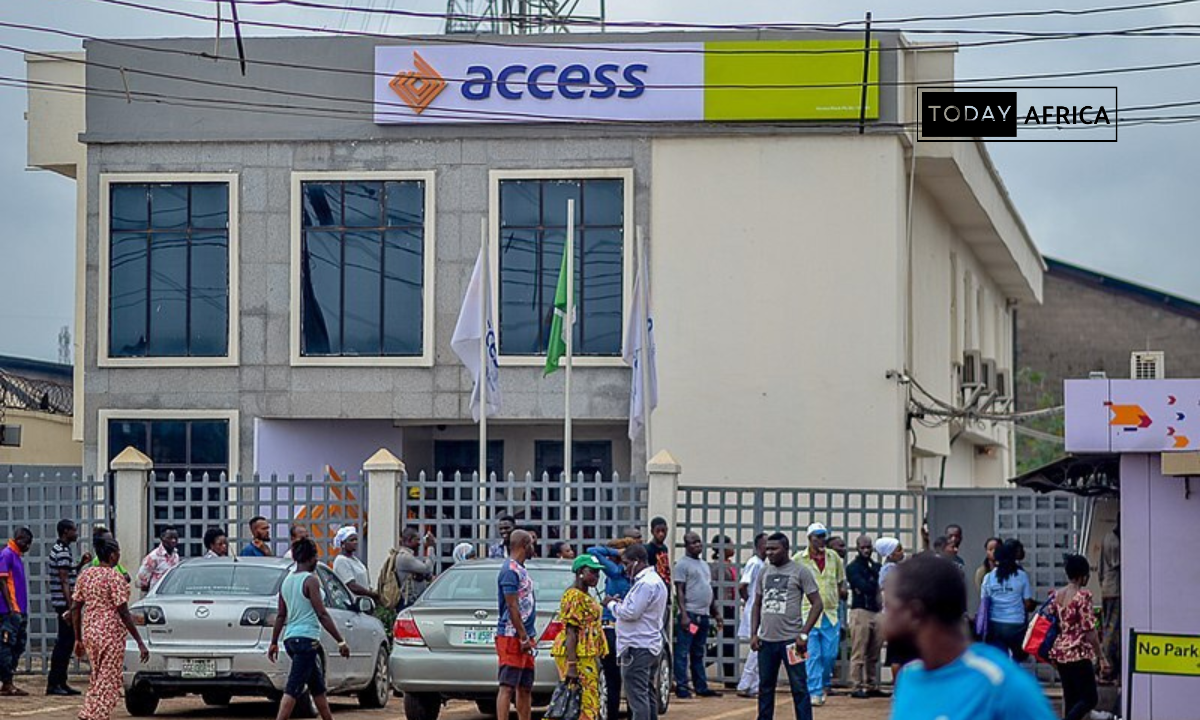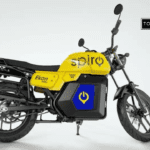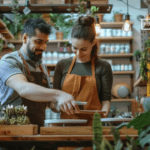Wondering things to do in The Gambia? There are countless places of interest in this beautiful African city. Aside from several popular tourist attractions, there are many interesting places too..
So, buckle up! Gambia is a country that promises to captivate your heart and challenge your sense of adventure. Are you ready?
Things to Know About The Gambia
The Gambia, country in western Africa situated on the Atlantic coast and surrounded by the neighbouring country of Senegal. It occupies a long narrow strip of land that surrounds the Gambia River. The land is flat and is dominated by the river, which is navigable throughout the length of the country.
The peculiar shape and size of the country are the result of territorial compromises made during the 19th century by Great Britain, which controlled the lower Gambia River, and France, which ruled the neighbouring colony of Senegal. Periodic talks in the 20th century to unite The Gambia and Senegal led to the short-lived Senegambia confederation (1982–89).
The Gambia is Africa’s smallest nonisland country. It is also one of Africa’s most densely populated countries. A few towns are located upriver, but most Gambians live in rural villages.
The major ethnic groups are similar to those in Senegal and consist of the majority Malinke and also include Wolof, Fulani (Fulbe), Diola (Jola), and Soninke peoples. The Gambian economy is heavily dependent on peanut (groundnut) production and export.
Best Time to Visit The Gambia
October to June is the dry season, and the best time to travel to Gambia, as it’s usually cooler at night, there are fewer mosquitoes around, and dirt roads upcountry are less likely to be blocked.
October to April is also the high season for Western tourists, with cheap, all inclusive coastal resorts filling up. For birders, the early dry season of October, November and December is the best time to visit, as following the rainy season most wetland habitats will be at their most lush, attracting large numbers of migrant birds from Europe.
To make your travel convenient and seamlessly connected, make sure you get a good eSIM package that works in your travel destination. MobiMatter is the ultimate eSIM marketplace that sells more than 700+ eSIMs across more than 190 countries! Check out this massive variety of eSIM packages just for Africa.
Things to do in The Gambia
1. Tanji fishing village
There are fish markets at Bakau, Tanji and Sanyang. These are colourful, vibrant places where you can watch the pirogues (fishing boats) come in and unload the day’s catch.
Men and women wade into the water and bring back buckets on their heads full of fish. Women buy and sell the fish while the seagulls squawk overhead ever hopeful of a few scraps.
Any keen photographers will love all the colour and action. But keep in mind that, as with the local markets, many people don’t like to be photographed. While you’ll have to pay for a taxi or hire a bicycle to get there once there, it is free to watch all the action.
2. Wrestling at Sanyang beach
There are many lovely sandy beaches in The Gambia, none of which ever get overcrowded and some with not another soul in sight. Sanyang, also known as Paradise Beach, is many people’s favourite. It has a small bar, café and a few craft stalls.

A short walk away you’ll see rows of colourful pirogues and behind that the fish is being prepared, dried and smoked. On Sundays throughout the main tourist season organised traditional wrestling matches are very entertaining.
3. Relax on the beaches of Banjul
Banjul, the capital city of Gambia, boasts beautiful beaches like Kotu Beach and Cape Point Beach. Spend a day soaking up the sun, swimming in the Atlantic Ocean, or simply enjoying the view. The warm, golden sands and inviting waters are perfect for relaxation.
4. Explore Abuko nature reserve
A short drive from Banjul, Abuko Nature Reserve is a must-visit for wildlife enthusiasts. The reserve is home to a variety of animals, including monkeys, crocodiles, and a wide range of bird species. The walking trails and observation points offer a great way to experience Gambia’s natural beauty.
5. Visit the Kunta Kinteh Island
Kunta Kinteh Island, formerly known as James Island, is a UNESCO World Heritage Site with a significant historical legacy. It was an important site in the transatlantic slave trade. Today, you can explore the ruins and learn about the island’s history through guided tours.
6. Visit the vibrant markets of Serrekunda
Serrekunda is the largest city in Gambia and is known for its bustling markets. Visit the Serrekunda Market to experience local life and shop for traditional crafts, clothing, and fresh produce. It’s a lively place where you can immerse yourself in the local culture.
7. Learn the culture at the National Museum
The National Museum in Banjul offers a comprehensive overview of Gambia’s history, culture, and art. The museum’s exhibits include traditional artifacts, historical photographs, and displays on the country’s colonial past.
8. Take a boat trip on the River Gambia
A boat trip on the River Gambia provides a unique perspective on the country’s landscapes and wildlife. You can spot hippos, crocodiles, and a variety of bird species while cruising along the river. Sunset cruises are particularly stunning.
9. Visit the Gambian Heritage Museum
Located in the city of Banjul, the Gambian Heritage Museum offers insight into the country’s diverse cultural heritage. From traditional music and dance to local crafts and historical artifacts, it’s a great place to learn more about Gambian culture.
10. Visit the Tanji Village Museum
Tanji Village Museum, situated in the coastal village of Tanji, provides a glimpse into traditional Gambian life. The museum showcases local art, crafts, and historical artifacts. It’s also a great spot to learn about the fishing culture that is central to many Gambian communities.
11. Explore the River Gambia National Park
River Gambia National Park is known for its rich biodiversity and stunning landscapes. The park is home to a variety of wildlife, including monkeys, birds, and reptiles. The park’s diverse habitats range from savannahs to wetlands, offering numerous opportunities for wildlife observation.
12. Attend a traditional Gambian festival
Gambia is known for its vibrant festivals, including the Kankurang Festival and the Sande Festival. These events feature traditional music, dance, and cultural performances. Attending a festival is a fantastic way to experience the country’s rich cultural traditions.
13. Visit the Albert Market
Located in the heart of Banjul, Albert Market is a bustling hub where you can shop for everything from fresh produce to textiles. The market’s lively atmosphere and diverse range of goods make it a must-visit for anyone interested in experiencing local Gambian life.

14. Discover the village of Juffureh
Juffureh is a village with historical significance, particularly due to its association with Kunta Kinteh, the ancestor of Alex Haley’s famous book “Roots.” The village offers guided tours that provide insight into the history and culture of the area.
15. Relax at Kololi beach
Kololi Beach is one of Gambia’s most popular beaches, known for its beautiful white sands and clear waters. It’s a great place to unwind, enjoy water sports, or simply soak in the tropical sun.
Read Also: 30 Things to do in Malabo Equatorial Guinea
16. Explore the Makasutu Culture Forest
Makasutu Culture Forest offers an immersive experience in Gambia’s natural environment. The forest is home to diverse flora and fauna, and guided tours provide insight into the cultural and ecological significance of the area. You can also enjoy canoe rides through the mangroves.
17. Visit the Gambia Craft Market
The Gambia Craft Market, located in Banjul, is a great place to shop for handcrafted souvenirs and local arts. From colorful textiles and wooden carvings to intricate beadwork and jewelry, you’ll find a wide range of unique items.
18. Enjoy Gambian Cuisine
Gambian cuisine is rich and varied, with dishes like benachin (a one-pot rice dish), yassa (marinated chicken or fish), and domoda (peanut stew). Sample local dishes at traditional eateries and restaurants to fully experience Gambian flavors.
19. Explore the Kiang West National Park
Kiang West National Park is another excellent destination for nature lovers. The park is known for its diverse ecosystems, including savannahs, forests, and wetlands. It’s a great place for birdwatching and observing wildlife in their natural habitat.
20. Visit the Gambia art and craft village
The Gambia art and craft village, located in the heart of Banjul, showcases the country’s vibrant arts scene. The village features galleries and workshops where you can see local artists at work and purchase unique artworks and crafts.
21. Take a trip to the salt pans of Tanji
The salt pans in Tanji are an interesting sight to behold. Local salt farmers use traditional methods to harvest salt from the sea. You can observe the salt production process and learn about the importance of salt in Gambian culture and economy.
22. Explore the historical town of Basse
Basse is a historic town with cultural significance. The town is known for its traditional architecture and local markets. It’s a great place to explore Gambian history and experience the country’s rural life.
22. Visit the Gambian Presidential Complex
While visiting the Gambian Presidential Complex in Banjul might require special permission, it’s worth it if you can. The complex offers insight into the country’s political history and current governance.
23. Explore the mangroves of Gambia
The mangroves in Gambia are crucial to the country’s ecosystem. Take a guided tour to explore these unique habitats and learn about their environmental importance. Boat tours through the mangroves offer a peaceful and scenic experience.
24. Visit the museum of Gambian history
The museum of Gambian history provides a detailed account of the country’s historical evolution. Exhibits cover various periods, including pre-colonial times, the slave trade, and post-independence developments.
25. Drink Julbrew
Although a predominantly Muslim country, where most citizens don’t drink alcohol, The Gambia is very moderate and tolerant of other religions and cultures. So much so that they even have their own brewery, Julbrew. While I’m not a huge larger fan, I do enjoy a cool Julbrew by the beach, preferably watching the sunset.
26. Kachikally sacred crocodile pool
This sacred pool is in Bakau but there are quite a few throughout The Gambia, some with and some without the crocodiles. The waters are said to have magical powers, in particular, they are said to aid fertility and women come long distances to be bathed in the waters.
A taxi driver once told me about an English couple he had taken there. They had been trying for years to have children, so they visited the pool and not long after returning home emailed him that they were expecting a baby.
27. Visit the monkeys at Bijilo forest park
There is a lovely walk through the trees and a huge population of green vervet monkeys which are great fun to watch. You may also see a Western Red Colobus monkey (look up into the trees).
This is an endangered species, and they are struggling to survive here because of the number of vervet monkeys. The vervets are doing so well because the tourists feed them and have become humanized so that they no longer fear us but instead see us a food sauce.
Not only can monkeys carry diseases that can be transmitted to humans, once they lose their natural fear of us. But they can also become problematic to local people, invading their homes and causing a significant nuisance.
28. Birdwatching
The Gambia is famous for birdwatching and is a favourite location of BBC wildlife presenter and birdwatching expert, Chris Packham because there are so many different birds found here – some 540 species.
Read Also: 30 Things to do in Mauritania
The best way to go birdwatching is to hire an official guide. However, many of the hotels have lovely grounds where a variety of birds can be seen, and it is worth asking if they have a bird guidebook you can borrow and even some binoculars. The guides have an office by Kotu Bridge.
29. Traditional drumming and dance show
Many hotels and some restaurants lay on entertainment. This can vary in quality and style, but there are a few superb traditional groups that play the circuit of hotels, and you can watch them while eating or over a drink. Please do tip them as some of the hotels pay them very little.

Four Things You Must Pack When Visiting The Gambia
I lost count of the number of times I’ve visited The Gambia a long time ago. I’ve stayed in a variety of hotels, travelled there with friends, on my own, with my husband, for work, on holiday and as a volunteer. Here are the four things I never travel to The Gambia without.
1. Anti-malaria tablets
It’s perfectly safe to travel to The Gambia as long as you take the necessary precautions. Thousands of holidaymakers go there and have a fabulous time, but malaria can kill and but is not worth taking the risk. You can buy anti-malaria tablets online, via a pharmacy, or from your GP.
2. Mosquito repellent
Even though you are taking anti-malaria pills, it’s safer still if you don’t get bitten. Mosquito bites can also be unsightly, as well as uncomfortable, so a reliable mosquito repellent is invaluable. Rohan offers a great range of insect repellents as well as first aid kits, blister kits, sunblock and mosquito
3. Mosquito-repellent clothing
When I first heard about mosquito repellent clothing I was a little dubious but, having tried it for myself, I can verify that it works. My favourite item is this sarong, but there’s a good range of shirts, hats and trousers available with mosquito repellent impregnated with mosquito repellent.
4. Plug converter
The hotels in The Gambia use a variety of electrical sockets. Many fit English-style three-pin plugs, while others fit European two-pin plugs. Make sure you take the right converter so you can’t get caught out. Worldwide travel adaptors are perfect no matter where you are travelling from or to.
References
Leave a comment below and follow us on social media for more tips and updates:
- Facebook: Today Africa
- Instagram: Today Africa
- Twitter: Today Africa
- LinkedIn: Today Africa
- YouTube: Today Africa Studio







![15 Best Beaches in Morocco to See This Year [& Essential Packing List]](https://todayafrica.co/wp-content/uploads/2023/12/Blue-Simple-Dad-Appreciation-Facebook-Post-1200-×-720-px-6-9.png)








